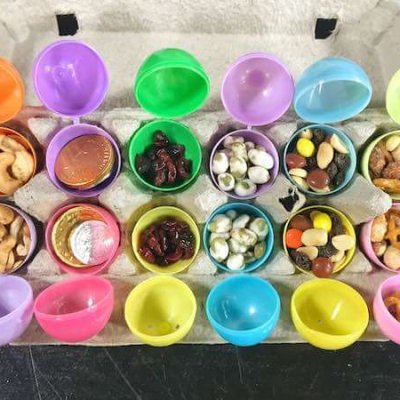Latest
I’ve spent the last few days sharing the story of my diagnosis, treatment, and recovery from Bell’s palsy and the outpouring of similar stories has been overwhelming. In hindsight, I wish I had reached out to the blogosphere at onset to find people going through what I was experiencing and could commiserate with me. Bell’s palsy has a funny way of making you feel isolated, depressed, mad, scared, selfish, withdrawn, embarrassed, hopeless, unattractive, debilitated, stressed out, exhausted, in pain, impatient, annoyed, frustrated…and the list goes on and on. And despite the love, care, and encouragement of family and friends, you still feel like you’re spinning in a self-absorbed little bubble wondering if you’re being selfish for being sad that your face looks completely messed up, that your ear and head hurt like it is nobody’s business, and that you’re tired of the looks from doctor’s that are happy to try to treat you but aren’t really 100% sure what to do.
I mentioned in an earlier post that when I was first diagnosed my husband connected me with the wife of one of his friends that had been battling Bell’s palsy and synkinesis for a few years. Rachel was a godsend! I spoke to her the day after onset and kept in communication regularly those first few weeks. I was SO fortunate to have someone else that understood my pain (literal and figurative), that didn’t judge me, that didn’t require a 15-minute lesson in just what the heck was going on with me, and that could understand and sympathize when I was hard to understand because I spoke with such a heavy slur (like my mouth had been shot up with the strongest novacain available). In addition to my team, I give her so much credit for my speedy recover. As someone in the medical field, I trusted the research that Rachel had done and the time she spent for herself (and now for me) to sort through the do’s and don’ts (and how they have drastically changed in even the last 5 years. I truly believe that her council along with my doctors, prayers, meds, and rest was what helped me heal so quickly.
Below is a list of top tips and takeaways that I gleaned from Rachel, research, Dr. Rodgers, and Gaye Cronin. If you’re newly diagnosed, I hope these tips help you too.
The 5 Musts-Do’s When First Diagnosed with Bell’s Palsy:
- Start a steroid regimen within the first 72 hours (earlier if possible) (I took a very high dose, 15-day course of prednisone)
- Start an antiviral regimen within the first 72 hours (earlier if possible) (I was on a very high does of Valtrex 2x per day)
- REST (If you have a new baby, this means calling in the family or a night nanny. You MUST sleep for the nerve to regenerate.
- Protect your eye (I used Celluvisc eye drops, Lacrilube eye ointment and taped down my eye at night to sleep.)
- Build your team (From God (or whatever higher power you believe in) to medical doctors to occupational therapists to family and friends, you MUST find support.)
8 Tips and Takeaways When First Diagnosed with Bell’s Palsy
- Don’t drink through a straw
- Don’t chew gum
- Don’t overwork the muscles in your face at onset (either by massage, acupuncture, facial exercises, etc. The nerve needs time to rest,)
- Eliminate all possible stress on the body (This goes along with rest but do whatever you have to do to take any pressure off of yourself–for me it was to stop nursing-not an easy decision-while for others it means a medical leave, etc.)
- Wear sunglasses to protect the eye from light, wind, and dirt
- Tape the eye shut at night to keep light out, to keep dirt and debris out, and to prevent corneal scratches from the sheet
- Cold weather exacerbates dry eye so watch the amount of time spent in the cold.
- Consider wearing earplugs if certain sounds are extremely loud.
HUGE thank you’s to all of you that have stuck with me and read through this entire series. It was an extremely emotional and stressful time but I’m thankful to be where I am today and hopeful that my story may help others suffering find comfort and support. If you or someone you know is suffering from Bell’s palsy or recently diagnosed, please feel free to share this series and connect them with me on Facebook.
Thank you!











